The year the World Changed part 1
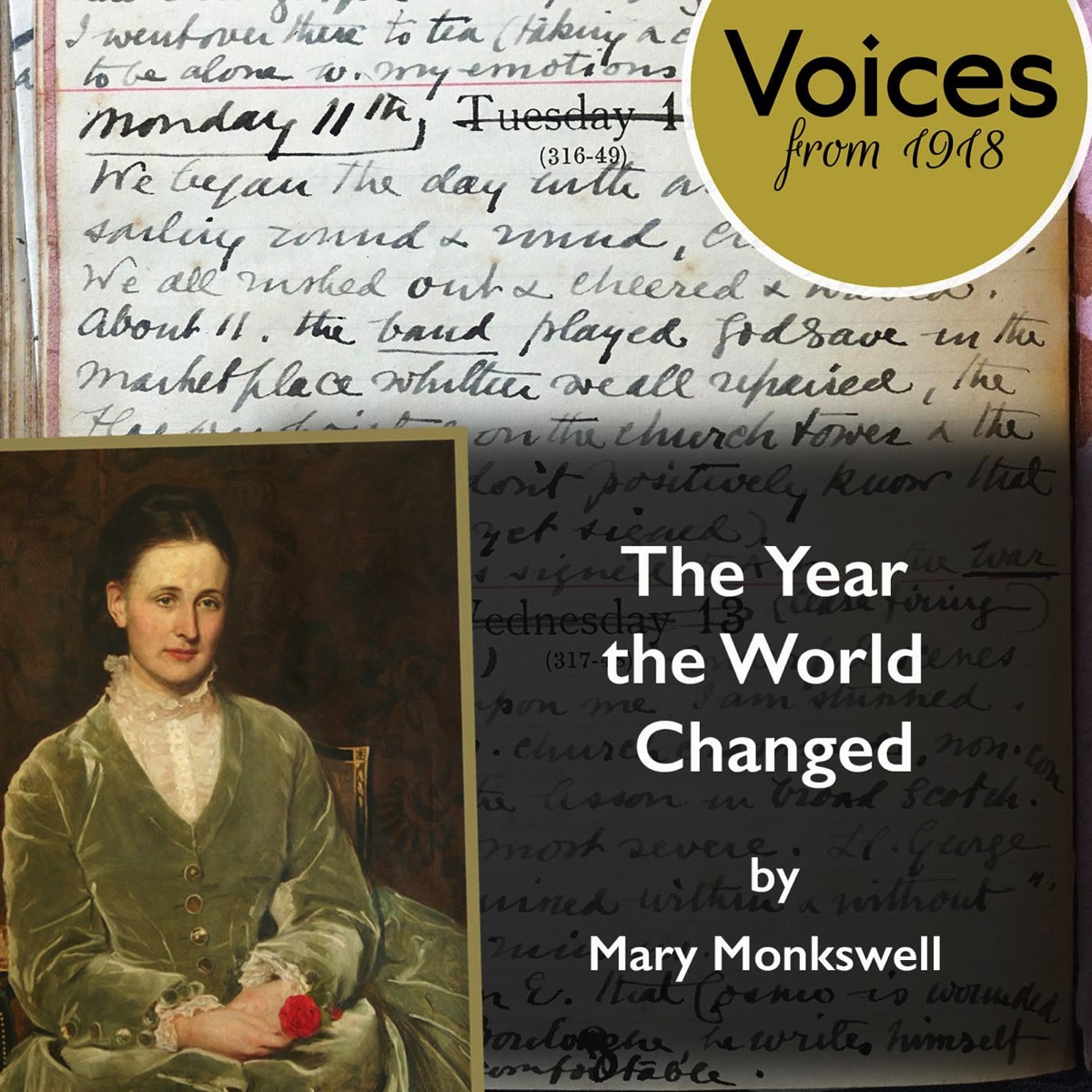

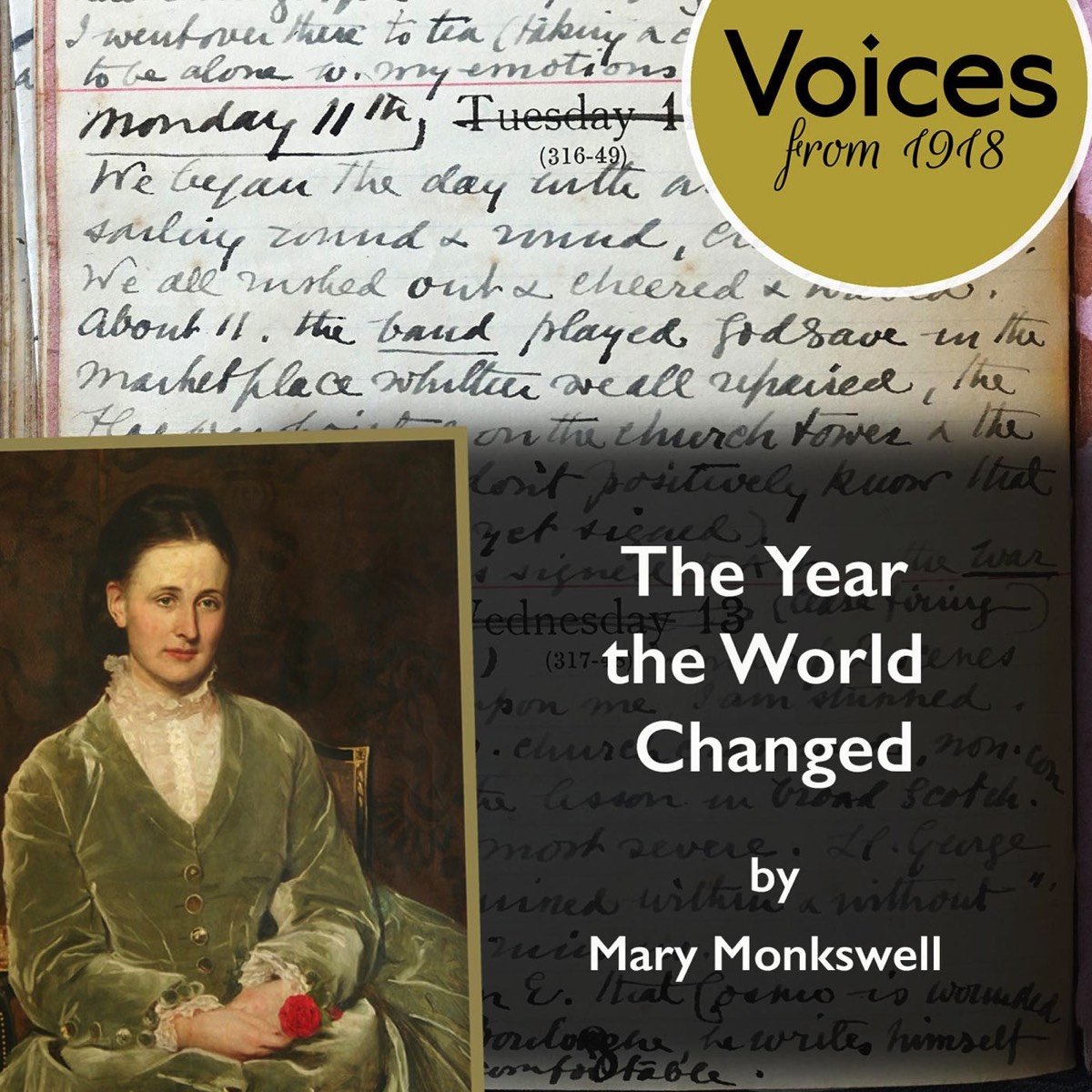
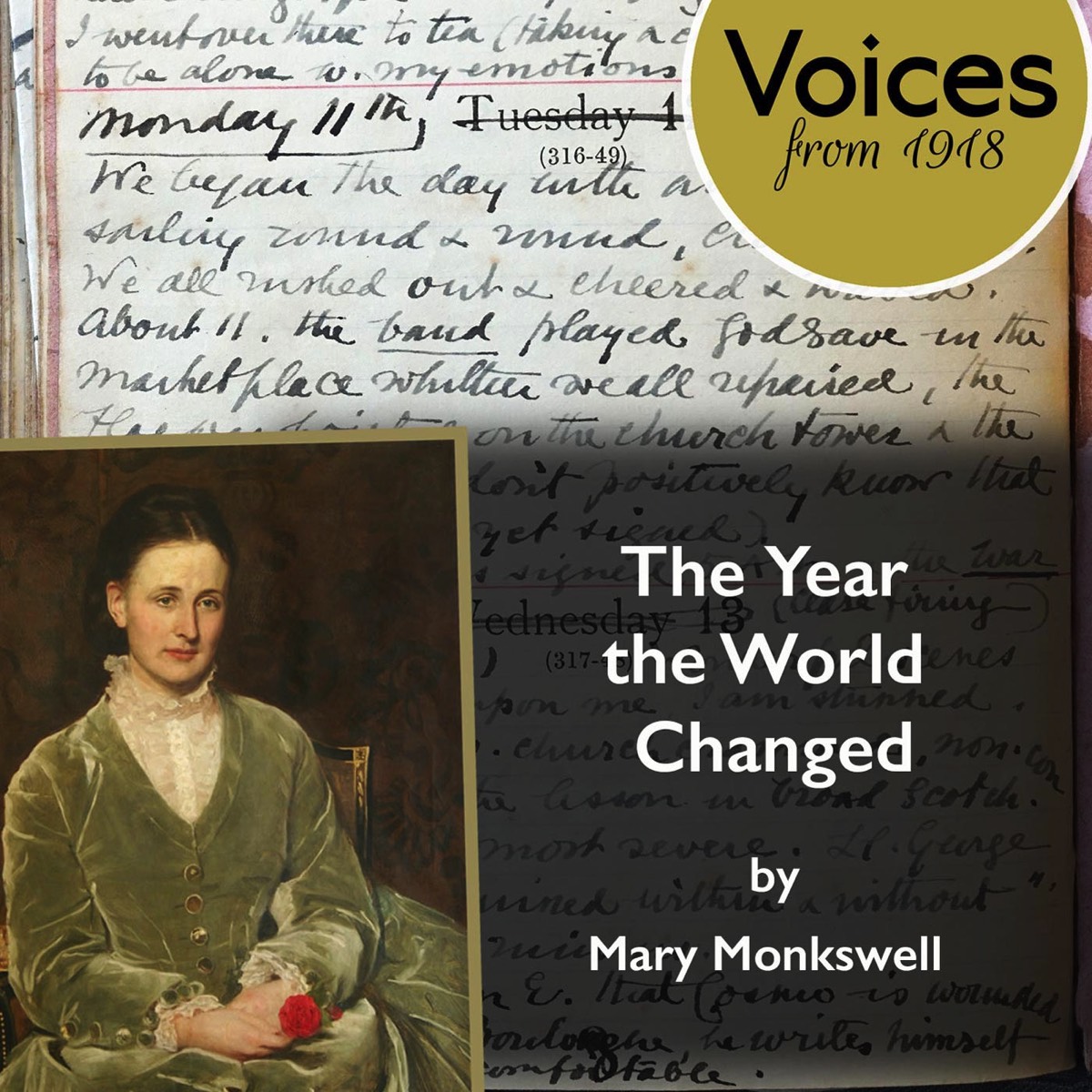

March 6th 1918
Winnifred Marsden, Commandant of Dorchester's Colliton House VAD Hospital received the OBE from HM King George V at BuckinghamPalace.
The hospital, which started with 20 patients in 1914 now has 200 in the house and 14 marquees.

Along with her diaries, Olive kept notes about her patients, their injuries, humour, mannerisms and of course, their voices. This was probably unusual for a mere orderly but Olive was a well to do woman of means and she was clearly very interested in doing her best for the men she looked after.
She’s obviously amused when one tells her: “Get out we're all eddicated in ’ere”; another mimics the hospital commandant's hymn singing and one of them calls her “Private Harcourt”.
After two and a half years in the heat and dust of the war in Palestine, stretcher bearer and #Portland quarryman James Sansom is on his way back to Europe with thousands of troops from the EEF returning to France to reinforce the Western front @IWM_Centenary @WW1IEPER1917 https://t.co/EQbHYUuEvT
— Voices from 1918 (@VoicesFrom1918) 29 April 2018
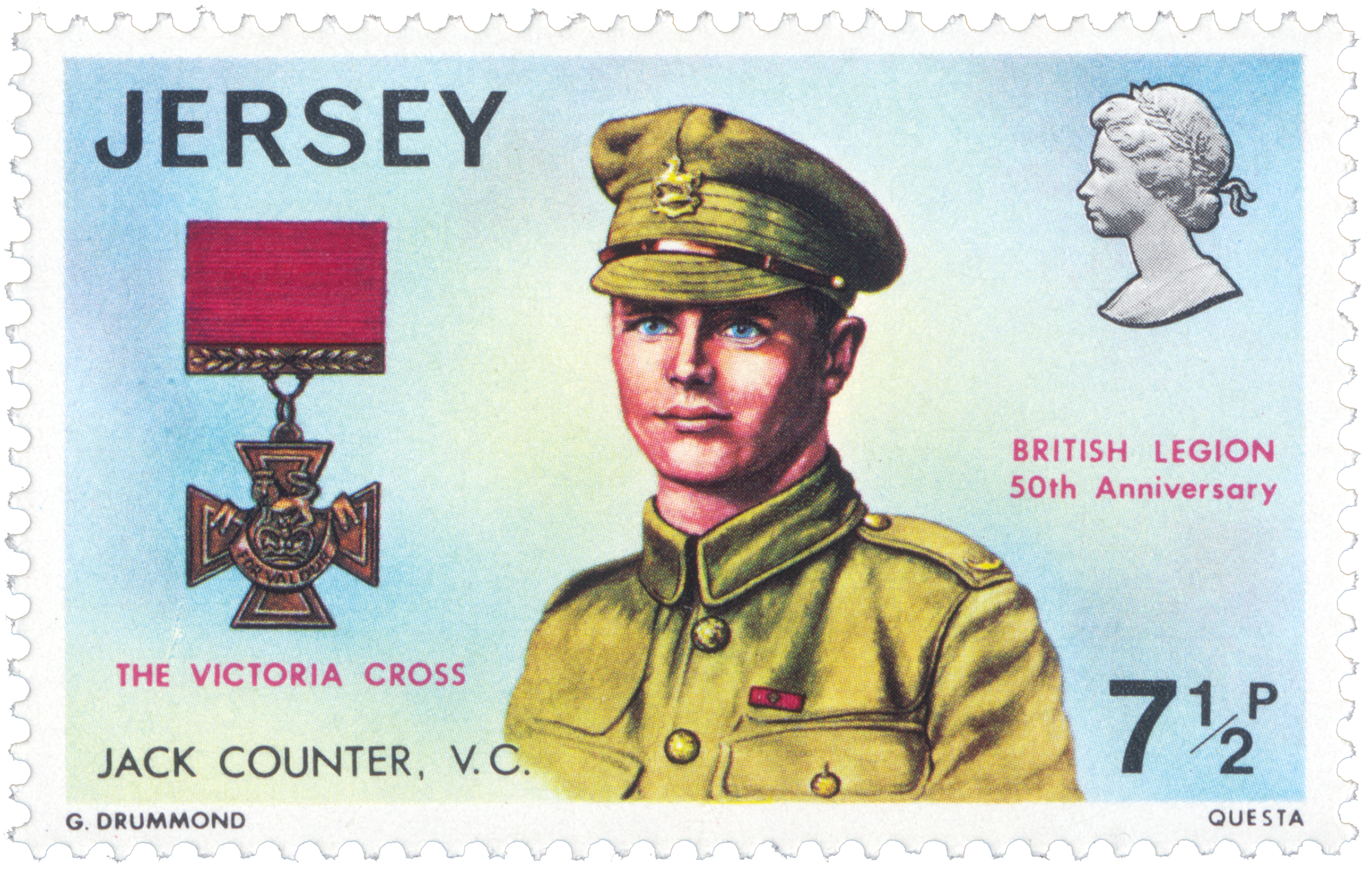
After six men were gunned down before him near Boisieux St. Marc in France, Dorset’s Jack Counter dragged himself face down along the ground, through barbed wire with a vital message for HQ.
His action in April 1918 won him the VC for an act of bravery remembered both in Blandford and his later home Jersey.
Private Counter, who died in 1970, was serving in the King's Liverpool Regiment when he volunteered to carry a vital message from the front line “under terrific fire”.

Lady Monkswell: 2.5.18 Letter from 415107 R Burt - Robert’s former batman, injured and working at an “aerodrome in the rear”
My Lord, Pleased to have your letter today but sorry to hear you Lordship is not improving much. Well my Lord, there is no doubt that active service takes it out of you. When one has had over two years and a half of it, it takes its toll. I close hoping that your Lordship will soon be better. Your obedient servant R Burt
May 10th 1918
— Voices from 1918 (@VoicesFrom1918) 10 May 2018
Huge day in Dorset’s naval history. Cdr Godsal, from Sturminster Marshall posthumously awarded the Croix de Guerre and Lieut Victor Crutchley from Nettlecombe the VC for their part in the second raid on Ostend, @BBCDorset pic.twitter.com/UP3GnVhZx3
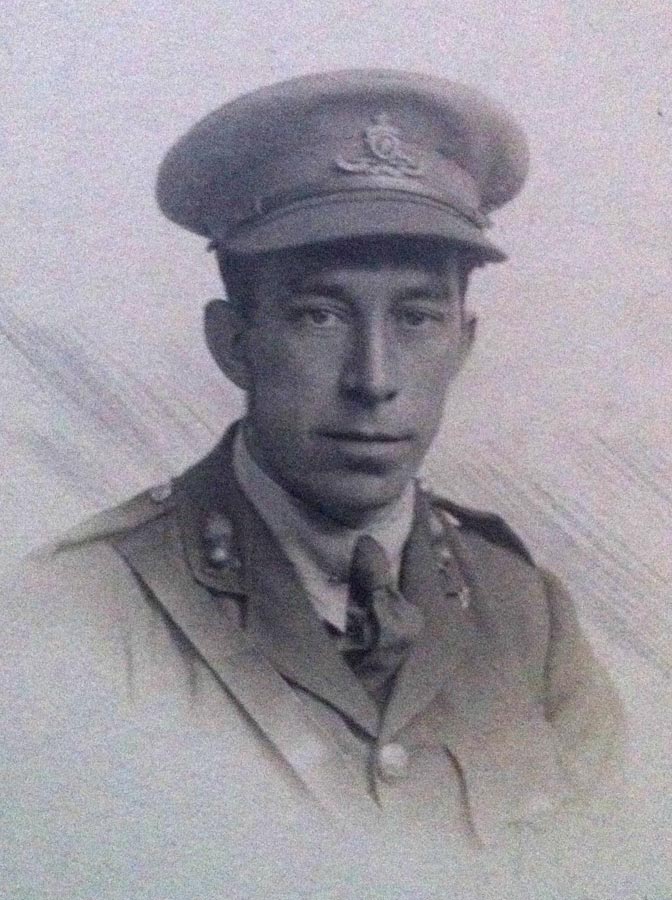
Letter from Alfred Johnson to his wife Essie:
May 22nd 1918. We are having gorgeous weather and are walking about without tunics. I expect some superior officer will shortly object and we shall have an order. "It has been brought to notice that officers are going about without tunics. This practice must cease forthwith."

Sgt Hugh Joseph Kennedy from Weymouth’s Nothe Fort Red Barracks, 2nd left back row joined RAMC’s no1 Stationary Hospital in Le Harvre in Aug 1914, and served in France until March 1919 with promotion to Warrant Officer class one
Based in Weymouth from 1910, He was one of the BEF Britain's regular soldiers dubbed ‘a contemptible little army’ by the Kaiser - the Old Contemptibles. His unit was at Le Mans until Oct 1914, then Rouen through the rest of the war.
We shall remember Sgt Kennedy and his colleagues as we drive around Le Mans on our way back to Dorset tomorrow.
— Nigel Kay (@nigelkay) 25 May 2018
May 25th 1918. Letter from Alfred Johnson to his wife Essie: "This country is an absolutely bare waste but in the last month quite a lot of wild flowers have come up, so that it is not so bad as it was in winter. There are lots of poppies and cornflowers & many small things I don't recognise. We had some lilac in the mess."
[The academic and artillery officer often read a book a day on duty, because visibility was so hazy at the OP - Observation Point. Today he was reading Barnaby Rudge by Charles Dickens, (1850)]
May 23 1918 Lieut Alfred Johnson to wife Essie:
I am on the telephone to-night, a job I don't like. One feels afraid to go really sound asleep. I see you had a pretty big raid on Sunday. He dropped a few round here last night but I was tired after a long day and never woke up.
In April he wrote: I wonder what they would do in this war without telephones. I have answered the blessed thing about 10 times in the last hour. It is very annoying to be rung up by H.Q to know why you have only fired 30 rounds, which they then discover to be the correct amount.
When visibility was poor, artillery officer Alfred Johnson read when he was at the OP [observation post] Wife Essie sent books ranging from suffrage writer May Sinclair to Tolstoy, Dickens and John Buchan. Here's what he got through in the first half of 1918:
Tom Cringles Log, Michael Scott, (1915); The Life of Wilkes, Horace Bleackley, (1917); Life of Johnson, James Boswell, (1865); Anna Karenina, Leo Tolstoy, (1877); May Sinclair [a member of the Woman Writers Suffrage League]; 39 Steps, John Buchan, (1915) ; Gibbon; The Loot of Cities, Arnold Bennett, (1903); The Stucco House, Gilbert Cannan, (1917); Land & Water, magazine; E. V. Lucas, [Collection of letters]; Martin Chuzzlewit, Charles Dickens, (1842); Leonora, Five towns Tales, Arnold Bennett (1903/ 1905); Edmond de Goncourt; Elizabeth and Her German Garden, Elizabeth von Arnim, (1898); Barnaby Rudge, Charles Dickens, (1850); The Egoist, George Meredith (1879); The Amateur Gentleman, John Jeffery Farnol, (1916).

Daily Telegraph: New York, Wednesday 6 June 1918
The tales of suffering and heroism by crews and passengers off the Atlantic coast are bringing home to the American people a fuller realisation of what has been taking place off your coast in the past four years

Daily Telegraph 6 June 1918
Indiscreet Joy
Federal Secret Service agents last night raided several New York clubs, patronised almost entirely by Germans, and broke up gatherings of Germans who were joyously celebrating the operations of the U-boats
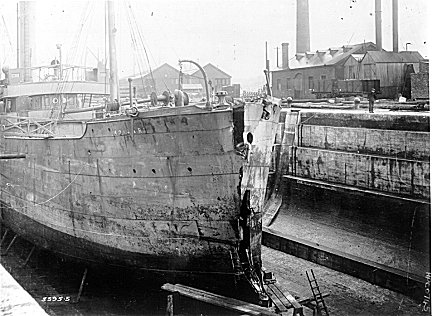
Sometimes we can use an account of an event recorded in a diary and do more research to build a fuller picture of what happened.
On June 8th 1918 Lady Mary Monkswell witnesses an attack on a U-Boat - a rare thing for anybody to have seen.
She writes “Came here fortnight today [Chideock] Watched an air-ship pass close, Lorna waved to it. It hung over Bay all PM. Sea planes came up from both sides, also destroyers, Great firing about 11pm. Did they get a U-boat? I think so.”
We know that something happened in the sea off Chideock but what exactly? If we look at records of U-boat losses and U-boat sinkings in Lyme Bay we can see a fuller picture.

9th July 1918 - A small article on page 7 of the Daily Telegraph says 11 seaman have died on a ship after catching influenza, following 96 deaths last week in Birmingham.
All elementary schools in Wigan have been closed because of the epidemic
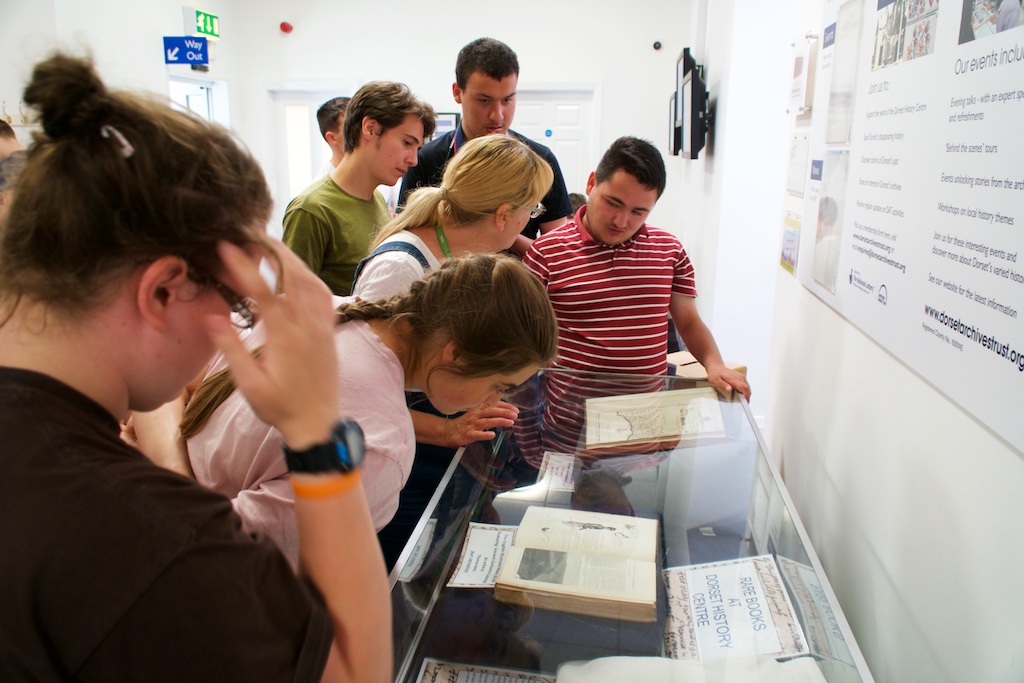
Students from the sixth form at Westfield Arts College joined us for a day at Dorset History Centre to explore the archives with engagement officer Maria Gayton and learn more about people’s lives in Dorset in 1918.
They visited the centre climate controlled archive with seven miles of shelves, listened to oral histories and learned about their importance.
Red Cross VAD nurses are back in Dorset 100 years on..serving cream teas! https://t.co/XMfWqgsMa5
— Voices from 1918 (@VoicesFrom1918) 12 July 2018
We are delighted that students from Westfield Arts College are joining us to learn more about life in Dorset as WWI ended. @VoicesFrom1918
— Dorset History Centre (@DorsetArchives) 12 July 2018
July 14th 1918
U-boat UC77 sunk by a mine off Flanders with the loss of all 30 hands. Weeks earlier on June 8th it was the target of an attack off Chideock, Dorset by airships, seaplanes and destroyers witnessed from the shore by Lady Mary Monkswell.
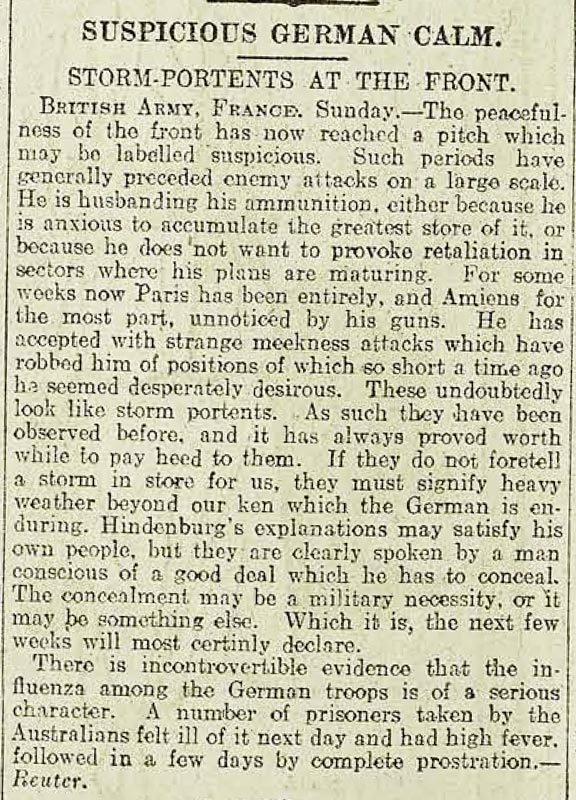
July 15th 1918
Peacefulness at the front has now reached a pitch which may be labelled suspicious, writes the Daily Telegraph. Such periods have generally preceded enemy attacks on a large scale. The paper reports influenza in the enemy is of a "serious character"
Anyone for tea? Students from Westfield Arts College are serving free Cream teas in @Brewery_Square Dorchester on Wednesday (11-1pm) to mark the launch of their silent film Tea for Two. The comedy, set in 1918, is part of their @ArtsAward @shascreenplay @ActivatePArts @artsdevco pic.twitter.com/PDo2H9e7z9
— Alastair Nisbet (@alastair) 16 July 2018
And here is that Lady Mary Monkswell diary entry about the U-boat (UC77 sunk off Flanders on July 14th 1918) that she witnessed on 8 June. @WW1IEPER1917 @LivesOfWW1 @VoicesFrom1918 pic.twitter.com/FKcUoRlV6O
— Dorset History Centre (@DorsetArchives) 16 July 2018
It’s not surprising that the most decorated of all British soldiers during WWI was Private W. H. Coltman, a stretcher-bearer. pic.twitter.com/XRUxNIm1dy
— Lindsey Fitzharris (@DrLindseyFitz) August 8, 2018
'Flappers' has become associated with the 1920s in popular memory, but it was firmly established as a synonym for 'pleasure-seeking young woman' in the Great War
— Peter Stanley (@Stanleyhistory) 15 August 2018
Caroline @SeaFerny enjoying the diary of her great aunt x3 @LadyMonkswell @VoicesFrom1918 @DorsetArchives @HLFSouthWest pic.twitter.com/1kQnXqyOm1
— Sharon Hayden (@shascreenplay) 31 August 2018
Short article about 1918 flu during #WW1. The pandemic killed 228,000 people in Britain & 50-100 million worldwide. https://t.co/ttvfxvhBmf
— WW1 Lives (@ww1lives) 13 September 2018

The newspaper habit in exciting times - William "WK" Haselden's cartoon from the Daily Mirror struck a chord with Lady Monkswell who pasted it into her carefully indexed scrapbook crammed with cuttings from 1918.
Every day, Lady Mary scrutinises the newspapers with hawk-like attention to detail, writes her own pithy summary, and files away the news articles in huge scrapbooks for later study.
Her trick often is to know about the news before it appears in print.
1918; A brief respite from war.
— WW1cemeteries.com (@ww1cemeteries) 19 September 2018
Women of Queen Mary's Army Auxiliary Corps bathing at Paris Plage and a military policeman playing with a French child on the beach. (IWM pics)#Womenatwar #WW1 #GreatWar #FWW pic.twitter.com/0YXRrJWVAN
A battering of the senses from @InsideOutDorset last night with Furious Folly's immersive and moving outdoor WW1 performance in Weymouth #IOD18 @domkippin @billgee162a @scjutton @VoicesFrom1918 pic.twitter.com/Y7F4ed0VRo
— Alastair Nisbet (@alastair) 22 September 2018
Immersive, powerful, extraordinary WW1 outdoor performance from Furious Folly for @InsideOutDorset in Weymouth last night #IOD18 @domkippin @billgee162a @scjutton pic.twitter.com/TJbsoNlDfS
— Voices from 1918 (@VoicesFrom1918) 22 September 2018
German prisoners of war marching past the Atherley Cinema on Shirley Road during the First World War. pic.twitter.com/FH8czWWJGl
— Historic Southampton (@HistoricalSoton) 25 September 2018
Tuesday Oct 1 1918 Letter from Alfred Forbes Johnson to wife Essie
The news continues to be splendid from all fronts. We have been doing another push and are now hoping it will last for a bit, so keen are we on the war. Reading: Mansfield Park, Jane Austen (from 1816)
2/10/1918: Ltr from Alfred Forbes Johnson to Essie Today I have been out with Simpson to a town where I was when I first came out. It is all in ruins now.
I am writing this is a crowded mess with the table covered with the latest papers and everyone discussing the news.
Hit in the leg by a British shell fragment, Guardsman Fred Noakes has to walk - or limp - two miles to a dressing station
We went over the top again at 5.30 and I was wounded just after six. It is a very cushy one, almost too cushy, for I am afraid it is not bad enough to get me to England. We knelt down to allow the barrage to go forward, when – whiz – crash! A shell screamed over my head.
— Fred Noakes (@fredtwells) 10 October 2018
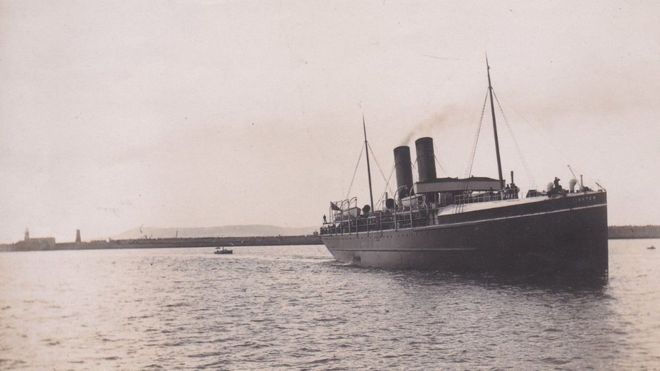
The loss of RMS Leinster on Oct 10 1918 with more than 500 on board was the greatest loss of life in the Irish Sea.
The added irony pointed out by Lady Mary was that it came just four days after the Germans had asked US President Woodrow Wilson for peace
We’d love to hear from you
Let us know what you think of Voices from 1918 and our podcasts - login to the form below using Facebook.

Using this blog
Explore by day, month or person here on the blog or on our five Twitter feeds: @Voicesfrom1918 @LadyMonkswell @MarieStopes1918 @JamesSansom230 and @OliveHarcourt.
Voices from 1918 has been developed by artists Sharon Hayden and Alastair Nisbet in partnership with Wimborne Community Theatre, Dorset History Centre and the Priest’s House Museum, Wimborne with funding from the Heritage Lottery Fund.
Thanks to all who have helped us with this project: Maria Gayton and staff at Dorset History Centre where we found Lady Mary Monkswell’s diaries; Joan Cocozza, ward of nursing auxiliary Olive Harcourt; Portland Museum where we found James Sansom’s diaries; the British Library and Wellcome Libraries; Priest’s House Museum in Wimborne and Gill Horitz from Wimborne Community Theatre.
We’ve used a new simpler type of blogging system which we beta tested for indie developer Janis Rondorf of Instacks software.
Posts created as simple text files are dropped into a folder on the webserver without the need for complicated formatting making it easy to upload material quickly.
We’re always happy to share more details about our work - email us using the link at the bottom of the page and we’ll get back to you.